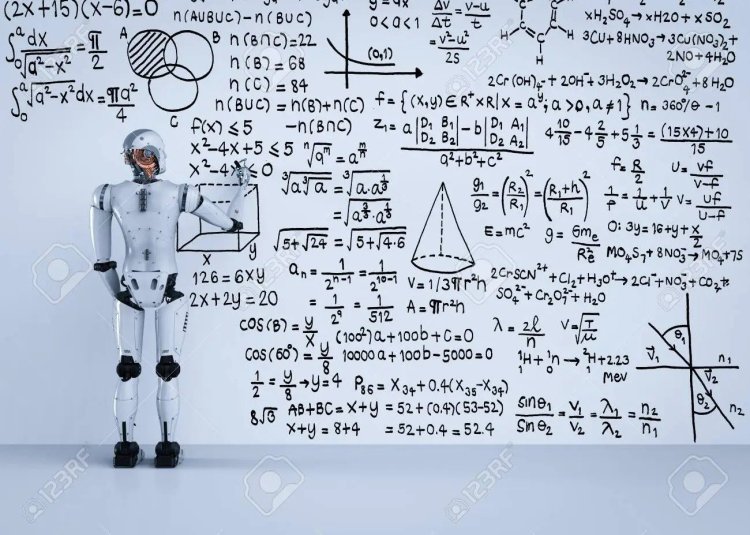AI Is Now Inventing Brand New Maths Theorems
DeepMind researchers have created an artificial intelligence that can prove and suggest abstract mathematical theorems. DeepMind is a team of computer scientists who made history in 2016 with AlphaGo, the first computer program to successfully defeat a world champion in a Go game.

Why study math? Once upon a time, people usually answered, "Well, you don't always have a calculator in your pocket!" - But smartphones have solved this problem. If you ask a professional mathematician today to justify their existence, he will tell you that you need human intuition to unravel perhaps the universe's greatest mysteries. "A calculator can compute the cube root of 14.7 in less than a second, but it takes something special to prove the four-color theorem." Not one, because DeepMind researchers have created an artificial intelligence that can prove and suggest abstract mathematical theorems. DeepMind is a team of computer scientists who made history in 2016 with AlphaGo, the first computer program to successfully defeat a world champion in a Go game.
Mathematician Jordi Williamson said, "Mathematicians have used machine learning to analyze complex data sets, but this is the first time that mathematicians have used computers to formulate guesses or to propose attack vectors for unproven mathematical ideas." Co-author of a paper on AI mathematics published today in the journal Nature.
Williamson is an internationally renowned representation theorist. In other words, he works with surprisingly abstract objects and tries to devise clever tricks to transform them into extremely abstract objects. If you're looking for an area of math that's basically AI-safe, it'll be high enough on your list.
"The work of proving or disproving long-standing hypotheses in my field sometimes involves considering infinitely spaced and multidimensional, extremely complex systems of equations," explained Williamson. “Based on our mathematical intuition, we have demonstrated that machine learning provides a powerful framework for discovering interesting and verifiable assumptions in areas where there is a lot of data available or the objects are too large to learn using classical methods. "
One of these hypotheses, which now seems somewhat more provable than before, has to do with the so-called Kazhdan-Lustig polynomial. These are mathematical expressions that have a fairly deep and fundamental connection with broad abstract mathematics. This hypothesis has been unsolved for 40 years, but thanks to the help of DeepMind, Williamson believes a solution is imminent.
DeepMind's talent is impressive in its own right, but it's surprising that it's not limited to cleaning up the remnants of human mathematicians. It turns out that artificial arithmetic is a real miracle in the field of knot theory like mathematics, um, and knots. This helped co-authors Mark Lakeby and Andras Juhas discover and prove a completely new, unexpected, and above all, surprising theorem linking algebraic and geometric knot invariants for mathematicians. "It was fun to use machine learning to discover new and unexpected connections between different areas of math," said
Lackeby. "I believe that the work we have done [...] proves that machine learning can be a really useful tool in mathematical research."
Therefore, mathematicians not only do not worry about future work, but hope to see more collaborations between humans and AI in the future. Williamson described intelligence in illustrative mathematical terms as "best to be seen as a multidimensional space with many axes, such as academic intelligence, emotional intelligence, and social intelligence." Seen in this way, artificial intelligence is just another axis through which problems can be explored, and the more axes you have, the more directions you can take to approach complex problems.
“AI is an unusual tool. "This work is one of the first to prove useful to a pure mathematician like me," said Williamson. "Intuition can go a long way, but AI can help find connections that the human mind doesn't always find easily."







